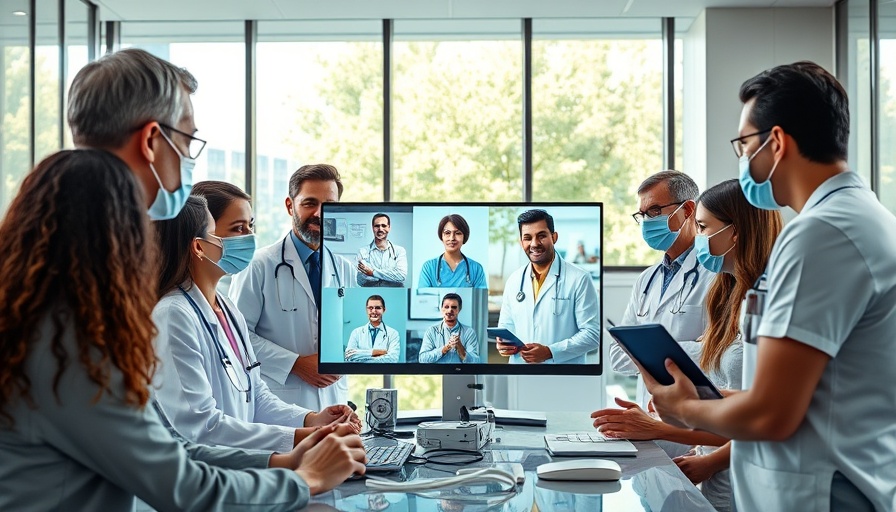
Ensuring Security in Healthcare Collaboration
In today's fast-paced healthcare environment, collaboration platforms have become indispensable for enhancing communication and care delivery. However, the assimilation of these platforms also brings heightened security risks that organizations must address effectively.
Why Data Security is Paramount
Data privacy concerns are more critical than ever, especially when dealing with sensitive patient information. Experts emphasize that healthcare organizations must employ robust security measures such as end-to-end encryption and multifactor authentication (MFA) to safeguard against unauthorized data access. As Jennifer Glenn from IDC underlines, effective collaboration hinges on managing secure content and access privileges, hence the need for organizations to develop comprehensive risk dashboards for better visibility.
Features to Protect Patient Information
Current collaboration tools like Microsoft Teams and Zoom come equipped with security features designed to maintain compliance and protect user privacy. With functionalities such as waiting rooms, password protections, and the ability to control shared content, these tools provide fluctuating levels of security that can be customized based on specific healthcare needs. Roopam Jain from Frost & Sullivan notes that these components are crucial for creating a secure environment that preserves the privacy of patient data.
Integrating Advanced Security Practices
Adopting technological advances also plays a pivotal role in enhancing security within healthcare collaboration platforms. Organizations are encouraged to integrate data loss prevention tools and conduct regular audits to monitor the effectiveness of their security systems. By doing so, they not only comply with HIPAA regulations but also ensure a culture of proactive risk management.
Future of Healthcare Collaboration Security
Looking forward, the intersection of artificial intelligence and health tech innovations promises to revolutionize data security practices in healthcare. AI-driven health solutions can provide real-time analysis of shared data and automatically flag risks that require immediate attention, streamlining the management of sensitive information even further.
As healthcare continues to evolve into a more digitally integrated model, staying updated with security advancements is no longer optional. Implementing advanced security features is not just about compliance; it’s about ensuring patient trust and safeguarding their most sensitive data.
For healthcare professionals, being informed about the latest in digital health tools and security best practices is vital. Embracing these advancements allows for improved patient care while simultaneously addressing the evolving challenge of data security.
 Add Row
Add Row  Add
Add 




Write A Comment